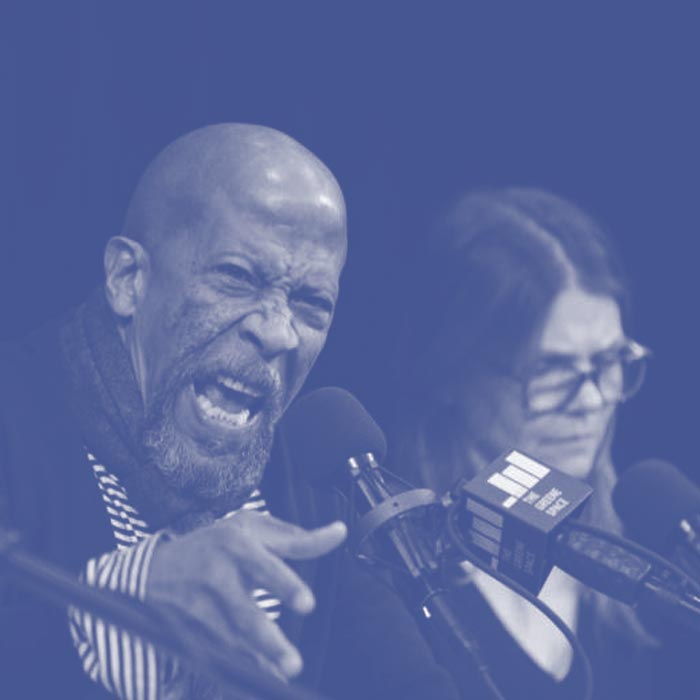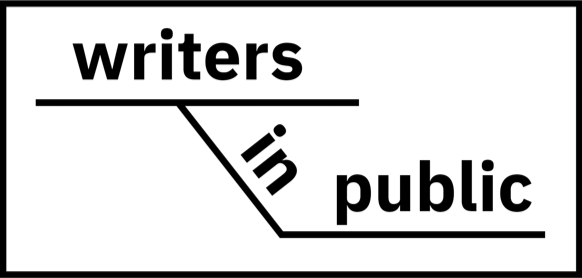
Peter Brook is a world-renowned theater and film director who has received multiple Tony and Emmy Awards for his films and theatrical productions. Among his cinematic works, he has directed Lord of the Flies and King Lear, and his prolific theatrical directing includes productions of Marat/Sade and The Tragedy of Carmen. He is an honorary member of the American Academy of Arts and Sciences and the author of the classic The Empty Space, as well as many other books on the stage.

Yusef Komunyakaa is an American poet who teaches at New York University and is a member of the Fellowship of Southern Writers. Komunyakaa is a recipient of the 1994 Kingsley Tufts Poetry Award and the 1994 Pulitzer Prize for Poetry.

Aziza Barnes is the author of i be but i ain’t (YesYes Books, 2016), winner of the 2015 Pamet River Prize. They are a poetry editor of Kinfolks Quarterly and earned an MFA from the University of Mississippi.

Sharifa Rhodes-Pitts is the author of Harlem Is Nowhere, a New York Times notable book and nominated for a National Book Critics Circle Award. Her articles have appeared in the New York Times Magazine, Harper’s, and Vogue. She was a Fulbright Scholar in 2007 and educated at Harvard University.

Bryan Doerries is a Brooklyn-based writer, director, and translator, who currently serves as Artistic Director of Theater of War Productions and NYC Public Artist in Residence.

Nick Flynn is an award-winning poet and the author of Another Bullshit Night in Suck City, winner of the PEN/Martha Albrand Award.

Carina del Valle Schorske is a writer and translator living in New York City and San Juan, Puerto Rico. Her work has appeared in the New York Times Magazine, Frieze, and Bookforum among others. “The Ladder Up,” an essay published in the Virginia Quarterly Review, was recently nominated for a 2020 National Magazine Award. She is at work on her first book, a psychogeography of Puerto Rican culture, forthcoming from Riverhead Books.

Theater of War Productions uses dramatic readings of seminal plays and community conversations to confront topics such as combat-related psychological injury, police and community relations, prison reform, gun violence, domestic violence, sexual assault, and substance abuse and addiction.
